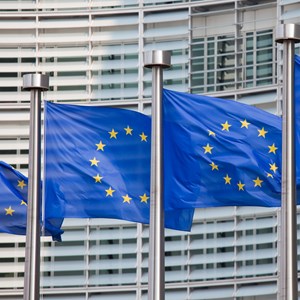NEWS

The British Standards Institution (BSI) hosted an excellent and varied meeting of the ISO Consumer Policy Committee (COPOLCO) in London in late May. The meeting featured sessions of the COPOLCO Working Groups: a joint event with BSI on “Protecting Consumers in the Age of AI” and the COPOLCO plenary annual meeting.

The ETUC has been actively contributing to the work of CEN and CENELEC Joint Technical Committee 21 (JTC 21) in the development of two European standards mandated by the European Commission to support the implementation of the AI Act.

On May 16, 2025, the Portuguese National Standardization Body – IPQ (Instituto Português da Qualidade) – officially launched NormIA, an AI-powered virtual assistant designed to support citizens and businesses in understanding and applying standards.

As we head into autumn, SIST has a series of engaging initiatives lined up to raise awareness of standardization and to deepen connections with business and research communities.

Norway is in the midst of a sweeping transformation in how it produces, distributes, and consumes energy. At the heart of this change is a national movement toward a fully electrified society—one where electricity is no longer limited to homes and some industrial applications but is becoming the foundation for transport, aquaculture, and other critical sectors. This evolution is not only central to meeting climate goals but also to fostering energy security, economic resilience, and technological leadership.

IFAN, the International Federation of Standards Users, recently hosted an IFAN AI Workshop. The workshop explored how AI is reshaping the standards ecosystem, from development to implementation. The workshop had a strong turnout, with over 50 participants from the standardization and tech communities. The engagement and interaction during the sessions reaffirmed the importance of cross-sector collaboration in shaping responsible, inclusive, and forward-looking AI standards.

An important milestone was reached in the implementation of the CEN Online Standards Development tool, with the deployment of the remaining stages of the standard drafting process in collaboration with ISO. The end-to-process from Project Creation to Publication is now available for CEN supported deliverables.

CEN and CENELEC responded to the Call for Evidence on the Revision of Regulation 1025/2012, outlining a clear vision to strengthen the European Standardization System (ESS) and ensure its continued relevance and resilience.

The CEN Workshop on was kicked off on 19th November 2024. The Workshop’s registered participants have agreed on the first draft of the CWA.

A new CEN Workshop is being planned which is an important part of the activities of the Horizon Europe Research project “BOOST-IN”. This initiative focuses on providing innovative solutions to meet the water scarcity and quality issues in Europe. Its goal is to identify and transfer Water Circular Economy Solutions (WACES) to improve water cycle management.